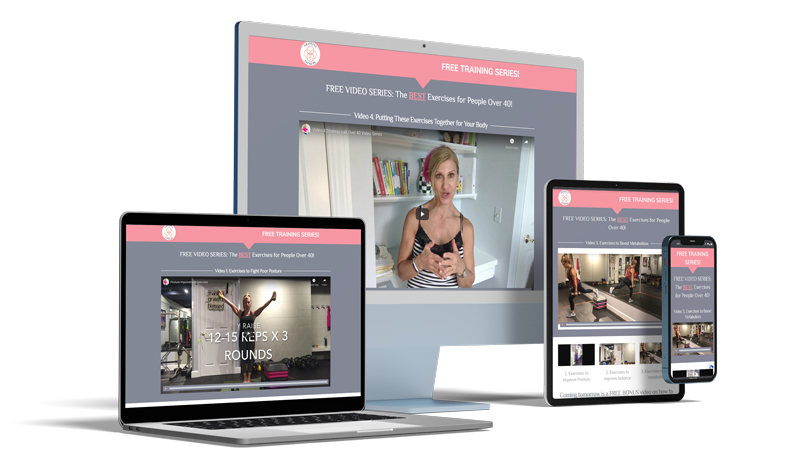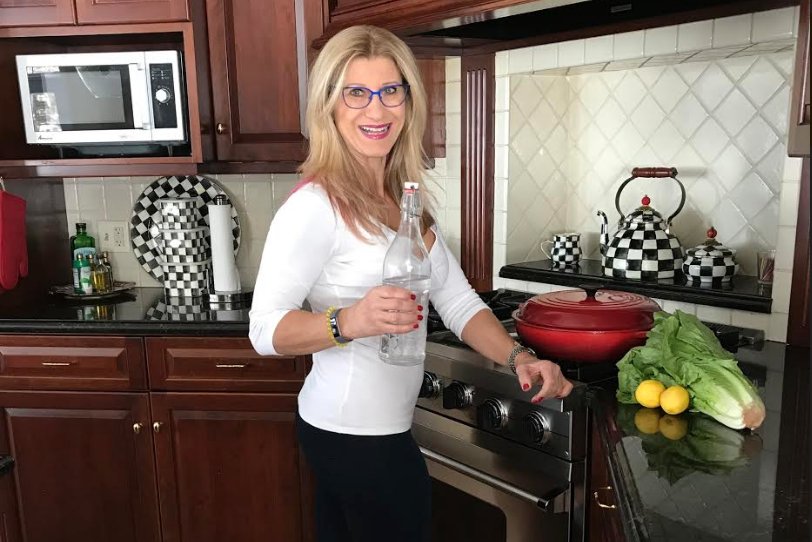The expression, “Happy Weight”, surfaces quite regularly in conversations among women when discussing weight loss goals.
Some people insist that happiness can not be determined by size. On the other hand, some absolutely insist they are happy or at least happier at their goal weight. [note: This conversation is not intended to address or treat eating disorders and may be a trigger for some people]
Can both sides be right about the merits of “Happy Weight”?
As a nutrition coach, it is frowned upon for me to admit that a ‘happy weight’ exists. It is frowned upon for me to tell you that your life will be happier if you lose or gain weight.
The fact is that plenty of people have lost weight and are miserable. Some people thrive on being miserable and thrive on negative self-talk. Those people want to be miserable, and may even be addicted to being miserable.
There are others who, when they achieve and maintain a healthy weight, are undeniably happier.
Why do we have to pretend that achieving our healthy goal weight will not make us happier?
For some people, reaching a healthy weight changes their life completely: Think of the woman who can go on family hikes on vacation, when before she couldn’t walk from the car to the supermarket entrance without getting out of breath. She is undoubtedly happier.
How about the woman who got off blood pressure and cholesterol medicine after achieving her happy weight?
These are real situations and real conversations that I have had with hundreds of women.
I did a little search on social media and found there are over 27 thousand posts about #happyweight on Instagram alone. This is a hot topic. Here are a few of the comments:
“It is the weight where you are the most healthy, not the leanest.”
“It is definitely about feeling comfortable in your skin, and about being healthy and living easily to sustain that weight.”
“It is about disease prevention” In midlife that correlates to keeping extra fat from accumulating around the middle. Excess fat around the middle is known to increase the risk of several diseases.
“I have a happy weight range”
“I struggled with my weight as a teenager and always felt like the big girl. I am finally happy in my skin but has taken years”
“I had an underlying undiagnosed eating disorder and I was not happy with my weight even 30 pounds lighter than I am now. It has taken me many years to feel comfortable “
“It’s a work in progress to love ourselves at every weight. But I no doubt feel my physical and emotional best at a certain amount of leanness.” Just as important is the weight where I can sustain my eating habits without feeling like they are hard to maintain. I don’t feel FOMO for missing out and I don’t feel guilty for overeating. This is a happy place.”
“Not really I don’t think that a certain weight triggers happiness. More like the other way around”
As you can see, there are many angles of thought on the #happyweight concept.
 Why is this important?
Why is this important?
Conversations about weight, healthy size, and happiness come up daily. Think of times when you have been in gatherings with two or more women. Chances are that the conversation at some point had a component of weight, diet, exercise, or leanness.
Having a healthy body has always fascinated me, and I also enjoy cooking entertaining, and eating. It has been 5 decades since my first diet. Over these years, I have chosen to study the most valuable tools for maintaining a healthy and happy weight.
Here are the 5 key values of living at a healthy weight…aka a happy weight:
1. You know you are at your happy weight if you feel virtually effortless at maintaining it. Now if you are holding extra fat and are looking to get healthier, it will take some work outside your comfort zone to get to this point.
2. The fast track is a false positive. Getting there fast is a setup for rebound weight gain. You must learn different behaviors and mindsets that are sustainable.
3. Once there maintaining it will feel natural. This is true if you have acquired healthy sustainable behaviors. (A very low-calorie diet is never the answer)
(RELATED: Click here to read my blog post about why calorie counting doesn’t work.)
4. At your happier weight, you do not need expensive detoxes. This often leads to rebound binges or extended periods of overeating. If you have chosen an unrealistic self-defined happy weight you will always require unreasonable willpower. This constant need for willpower is not sustainable and is a setup for yo-yo gains and losses.
5. At your happier weight, your metabolism is functioning optimally. Diet-hopping and losing and gaining weight cyclically will lead to a higher percentage of body fat and lower resting metabolism. Your body will hoard fat at even lower calorie loads.
The most important lesson here is that maintaining a happy and healthy weight requires a mindset shift. Short-term approaches fail because they are unsustainable, they create a sluggish metabolism, and they fail to train your brain for healthy living.
A word on willpower: Willpower will be necessary at the beginning because new habits take time to acquire. The goal is to teach your brain the healthiest approach for your body. When this eventually happens willpower will not need to be the first line of defense.
You will feel at ease when you learn to eat for your body.
If this is something you are longing to achieve, contact me at Judy@judyarazoza.com and we can set up a complimentary discovery call.
FREE Video Series: The Best Exercises for Women Over 40!

Free 3-Part video Series goes in-depth teaching you how to perform the above exercises step-by-step THE RIGHT WAY without getting hurt.


